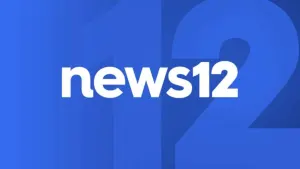Social media platforms have continued to try taking steps to slow the spread of inaccurate or misleading posts.
With a pandemic and a presidential campaign intersecting, the need to get accurate, correct information is as important as ever. And social media platforms have taken steps at varying levels to curb misinformation and hate speech.
On Monday, Facebook CEO Mark Zuckerberg announced the website would ban posts that deny or distort the Holocaust.
Andrea Bolender, of the Holocaust Memorial and Tolerance Center, has seen acts of anti-Semitism in her own backyard. Last December, vandals left swastikas and hateful graffiti on the ground of the Glen Cove center.
Bolender applauded Facebook for drawing a distinction between free speech and hate speech on its platform.
"Remember: Words matter. The Holocaust did not start with actions, it started with words," says Bolender. "So when you deny something and you create the words and the words turn into slogans and the slogans become violence."
Twitter is also imposing tough new rules ahead of Election Day, including removing tweets that encourage violence or call for people to interfere with election results.
It said it will also make it more difficult to retweet posts it has flagged as containing misleading information.
"The thing with the election and campaign information is that one tweet can go viral so quickly, and so as soon as the information is out there, whether or not it's factual, it's spread all around," says tech expert Lance Ulanoff.
Tech experts say the social media giants' crackdown is a step in the right direction but ultimately, it's up to the consumer to be more discerning about getting information from credible sources.
More from News 12
2:55

LIRR deals with delays, cancellations due to ongoing storm-related issues
2:42

BITTER BLAST: Sun and clouds with a potential afternoon snow shower on Long Island
0:33

'Significant' water main break in Copiague impacts dozens
0:19

19-year-old charged with theft, possessing gun at Green Acres Mall

Back-to-back storms? There’s weather to watch this weekend in the tri-state
